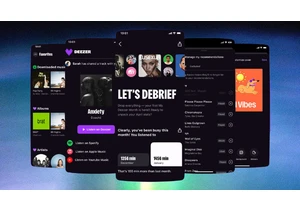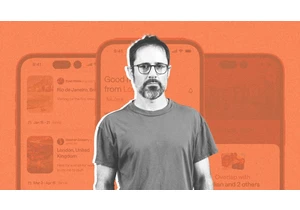For those who prefer taking digital notes by hand instead of typing, Notability has long been an iPad must-have. The app lets users take handwritten notes on an iPad, ideally with an Apple Pencil. It supports an array of brush styles and paper formats, and it has a killer audio recording feature for lectures and interviews: Recordings and written notes are synchronized, so you can tap on what you wrote and hear the audio from that exact moment. (The app is also available for iPhones and Macs, where it’s mostly helpful for reviewing existing notes.) But after 11 years of selling the app for an up-front price—most recently $9–developer Ginger Labs is leaving that model behind. Notability is now free to download, and will require a $15 per year subscription—or $12 per year for a limited time—to unlock all of its features. Non-paying users will have limits on how many times they can edit a note and how many brushes they can save as favorites, and they’ll no longer be able to automatically sync notes to iCloud or other online storage services. K-12 schools will get the full version of free, but existing non-education users won’t. Instead, they’ll get one more year to use the app without restrictions. [Image: Notability]The switch to a subscription model may not sit well with all of Notability’s 15 million users, but Colin Gilboy, the lead engineer at Ginger Labs, says it’s necessary to serve a larger goal: By getting more people to try the app, the company is hoping to create an ecosystem where users can share notes and templates with one another. “It’s not really driven by revenue or profits, so much as how we want to expand and increase our reach, and build a broader ecosystem,” Gilboy says. Creating a community The centerpiece of this new push is a gallery where users will be able to find notes that others have uploaded. Students, for instance, might use the gallery to look up notes on a certain study topic. It could also be a place to discover new note-taking formats or coloring pages. Users will then be able to download, edit, and highlight those notes for themselves. Overall, it sounds like a nod to the way apps such as Notion and Coda are building communities around shared document templates. Both of those services offer free tiers as well, the idea being that it helps promote a bigger ecosystem. Last year, Notability tried a different approach, selling templates, planners, themes, and stickers to its users through an in-app shop. A “Feel Good Journal,” for instance, offered coloring pages and other mindfulness exercises—Gilboy says it was the store’s most popular offering—while a “Digital Life Planner” provided an array of calendar views and goal-planning pages. Notability also sold extra features such as handwriting recognition and math conversion. Those features will all become part of the new subscription plan, but Gilboy says he’s more excited to see what users will come up with on their own. “We see the future of Notability as being more focused on collaboration and sharing,” he says. Still, Ginger Labs wants to nudge users toward subscriptions even if they’re not taking advantage of those sharing features, hence the limits on cloud backups and edits. The company won’t say exactly how many edits it will allow on a single note before hitting users with a paywall—for now, it wants to be able to tweak the number based on what it sees from users—but it does want its heaviest users to eventually pay up. “We want to make sure that people can’t just use Notability and make it all the way through med school for free,” Gilboy says. “That would leave us without a business.”
Connectez-vous pour ajouter un commentaire
Autres messages de ce groupe

Amid the video podcast boom, Netflix is making its own move into the space.

If real Easter eggs aren’t your thing this weekend, you may find hunting for digital ones more enjoyable. And there are some cool ones to find at your fingertips, provided you have an iPhone or Ma

With music streaming, users have gotten used to being at the mercy of algorithms. But French music streamer Deezer is making it easier for its subscribers to make the algorithm work for them.

Trying to get from point A to point B? If only it were that simple! With any manner of travel these days, you’ve got options: planes, trains, buses, ferries, and beyond. And finding the best

When Twitter cofounder and Medium founder Evan “Ev” Williams was planning his 50th birthday party, he didn’t know who to invite. Having spent more of his life building and scaling tech

If you thought you’d heard the last of the viral “Apple” dance, think again. The TikToker behind it is now suing Roblox over its unauthorized use.
Last year, during the height of Brat su

A Wall Street Journal report this week gave an extensive look into how Elon Musk, the
